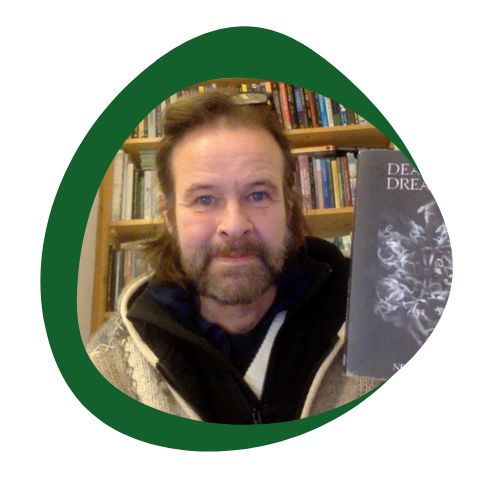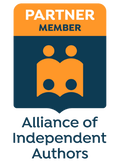Neil Rushton
Published Books
Dead But Dreaming BUY ON AMAZON = https://amzn.eu/d/d14pN0p
Who are you? Tell us a little bit about yourself...
I’m Neil Rushton and I currently reside in Liverpool, after moving here in 2018. I’ve lived a somewhat nomadic existence, never really settling anywhere, and always moving on to new places. I’m trained as an archaeologist, and went on my first excavation in 1992. I spent seven years, 1995-2002, gaining a BA, MA and eventually a PhD from Trinity College, University of Cambridge — my thesis was on how medieval monasteries administered poor relief. I’ve worked in academia and for various heritage organisations in the UK, but at the end of 2015 I lost quite a bit of my eyesight –- this was the crisis point that took me away from my archaeological career and towards a new incarnation as a writer. I live quite an isolated existence and spend a lot of time inside my own head, but I do have one constant companion — my cat Lucy, who is almost as neurotic as I am! Since 2016 I’ve been writing for my blog site, which takes a look at the phenomenon of faerie folklore, and I’ve published articles in a range of online outlets, such as Ancient Origins, Beyond Science, Sott, The Daily Grail, Psychedelic Press, and New Dawn Magazine.
What first inspired you to start writing?
I’ve always found writing the best way to express myself. It’s the medium I’ve used since childhood to articulate my feelings. But my first forays into writing for public consumption began at university, when I soon realised that I needed to get my work published in journals if I were going to be accepted in the academic community. This was when I learnt some of the necessary skills for coherent written communication. I have published over twenty academic articles, and in 2016 published my first novel Set the Controls for the Heart of the Sun. The inspiration to turn to fiction came from a vivid dream, which transformed into the first chapter of the novel. Unlike writing articles about archaeology or folklore, I enjoy the freedom fiction gives me to get under the skin of what it is to be human; there is greater scope for artistic expression. In the words of Francis Bacon: ‘It is the job of an artist to deepen the mystery, not to clarify it.’
What made you want to work with Rowanvale and be published?
My first novel was traditionally published, but I found the experience quite restrictive. For Dead but Dreaming I wanted to find an independent publisher who would be fully supportive of my vision for the book, while also giving me the freedom to tell the story on my own terms. I liked the Rowanvale website, and as soon as I made contact I could tell it was a dynamic, professional set-up, which would bring the second novel to publication. I haven’t been disappointed.
When you’re not writing, what are you reading?
I am always consuming folklore, most especially that relating to Britain and Ireland. There is an ever-growing corpus of new work and I need to keep on top of it to inform my own writing on the subject. The folklorist Katherine Briggs (d.1980) has been a special influence. I tend not to read much modern fiction as I find I’m constantly catching up with the classics. My favourite author is probably Thomas Hardy, closely followed by all of the Brontës. But I don’t think I’ve ever read a 19th-century novel I didn’t like. I particularly enjoy the attention to detail and depth of the prose contained in 19th-century literature — there is a luxuriance and sumptuousness in it that I always appreciate. I also consider the best novel of the 20th century to be Watership Down by Richard Adams — I’ve read it multiple times and always get something new from it. I do also read a lot of modern philosophy and science by authors who are attempting to push the boundaries of our understanding of reality: Graham Hancock, JJ Valberg, James Tartaglia, Thomas Campbell, Robert Lanza, Bruce Lipton, Patrick Harpur, Rupert Sheldrake, Terence McKenna, Dean Radin, Jeffrey Kripal, Michael Talbot, Thomas Sheridan, Stanislav Grof, Anthony Peake, David Luke, Bernardo Kastrup, Amit Goswami, Rick Strassman et al. I appreciate their ability to give us a wider understanding of the universe we live in. And I’m always reading poetry, most especially the work of Lord Byron, who I consider the pre-eminent English-language poet.
Which work are you most proud of?
I’m proud of everything I’ve published, and appreciate the opportunities I’ve had to convey my ideas, whether it be academic, populist or fiction. My first novel will always be special to me as it allowed me to explicate many of the abstracted concepts that had been building within me for years. But I know that Dead but Dreaming is probably the best fiction I have written… although, of course, only the reader will be able to decide whether this is correct.
What’s your best advice for handling writer's block?
I’m definitely the wrong person to ask! I’m frequently assailed by writer’s block, usually as a result of chronic procrastination. This has most effectively been broken by editors who gently but firmly suggest I need to meet a deadline if I want to be published. The only useful suggestion I have is that if you want to get something written, switch off the often insidious temptation of perma-browsing social media. This will always help concentrate the mind.
What’s one thing you always have with you when you’re writing?
My MAC. I used to have a notebook to jot down ideas. But whenever I reviewed those ideas I realised they were mostly incoherent, un-indexed ramblings, and thus quite useless. One thing I always do before I start writing is light up a joss stick. I find this usually calms my anxiety and allows an environment conducive to creativity. Generally, I also have some ambient music in the background - either electronica or classical. Much of this seeps into the writing and (I think) improves it.
What is the one book you would take with you if you were stuck on a desert island?
This is an easy one: The Complete Poetry, Letters and Journals of Lord Byron. Living his life vicariously, while on a desert island, actually sounds like paradise.
What is the best part about being an independently published author?
Independence. My fiction can be a little out there, but this is how I want it to be, and I need that expression to remain relatively untouched. Whenever I’m writing a pre-agreed article for a website I feel constrained and somewhat locked up within a reality box of expectations. When I’m writing for my blog site or writing fiction for independent publication, I have a freedom, which I find beneficial to creativity.
What’s next for you?
I will continue to write articles for my blog site and various websites, and am planning to write a book about faerie folklore and how it relates to the experience of the faerie phenomenon in modern culture. I also have the genesis of an idea for a third novel. All I need to do is overcome my ever-present procrastination and all will be well. I also co-host a popular podcast with Kate Ray called Hare in the Hawthorn, where we investigate the faerie phenomenon from a range of perspectives.
Social Media
Twitter: @neilrushton13
Facebook (personal): https://www.facebook.com/neil.rushton/
Facebook (Community Page): https://www.facebook.com/thefaeriecode
Amazon Author Central: https://www.amazon.co.uk/-/e/B0081952X2
Blog Site
https://deadbutdreaming.wordpress.com
Podcast
https://www.youtube.com/@kateharegirlray
Dead But Dreaming BUY ON AMAZON = https://amzn.eu/d/d14pN0p
Who are you? Tell us a little bit about yourself...
I’m Neil Rushton and I currently reside in Liverpool, after moving here in 2018. I’ve lived a somewhat nomadic existence, never really settling anywhere, and always moving on to new places. I’m trained as an archaeologist, and went on my first excavation in 1992. I spent seven years, 1995-2002, gaining a BA, MA and eventually a PhD from Trinity College, University of Cambridge — my thesis was on how medieval monasteries administered poor relief. I’ve worked in academia and for various heritage organisations in the UK, but at the end of 2015 I lost quite a bit of my eyesight –- this was the crisis point that took me away from my archaeological career and towards a new incarnation as a writer. I live quite an isolated existence and spend a lot of time inside my own head, but I do have one constant companion — my cat Lucy, who is almost as neurotic as I am! Since 2016 I’ve been writing for my blog site, which takes a look at the phenomenon of faerie folklore, and I’ve published articles in a range of online outlets, such as Ancient Origins, Beyond Science, Sott, The Daily Grail, Psychedelic Press, and New Dawn Magazine.
What first inspired you to start writing?
I’ve always found writing the best way to express myself. It’s the medium I’ve used since childhood to articulate my feelings. But my first forays into writing for public consumption began at university, when I soon realised that I needed to get my work published in journals if I were going to be accepted in the academic community. This was when I learnt some of the necessary skills for coherent written communication. I have published over twenty academic articles, and in 2016 published my first novel Set the Controls for the Heart of the Sun. The inspiration to turn to fiction came from a vivid dream, which transformed into the first chapter of the novel. Unlike writing articles about archaeology or folklore, I enjoy the freedom fiction gives me to get under the skin of what it is to be human; there is greater scope for artistic expression. In the words of Francis Bacon: ‘It is the job of an artist to deepen the mystery, not to clarify it.’
What made you want to work with Rowanvale and be published?
My first novel was traditionally published, but I found the experience quite restrictive. For Dead but Dreaming I wanted to find an independent publisher who would be fully supportive of my vision for the book, while also giving me the freedom to tell the story on my own terms. I liked the Rowanvale website, and as soon as I made contact I could tell it was a dynamic, professional set-up, which would bring the second novel to publication. I haven’t been disappointed.
When you’re not writing, what are you reading?
I am always consuming folklore, most especially that relating to Britain and Ireland. There is an ever-growing corpus of new work and I need to keep on top of it to inform my own writing on the subject. The folklorist Katherine Briggs (d.1980) has been a special influence. I tend not to read much modern fiction as I find I’m constantly catching up with the classics. My favourite author is probably Thomas Hardy, closely followed by all of the Brontës. But I don’t think I’ve ever read a 19th-century novel I didn’t like. I particularly enjoy the attention to detail and depth of the prose contained in 19th-century literature — there is a luxuriance and sumptuousness in it that I always appreciate. I also consider the best novel of the 20th century to be Watership Down by Richard Adams — I’ve read it multiple times and always get something new from it. I do also read a lot of modern philosophy and science by authors who are attempting to push the boundaries of our understanding of reality: Graham Hancock, JJ Valberg, James Tartaglia, Thomas Campbell, Robert Lanza, Bruce Lipton, Patrick Harpur, Rupert Sheldrake, Terence McKenna, Dean Radin, Jeffrey Kripal, Michael Talbot, Thomas Sheridan, Stanislav Grof, Anthony Peake, David Luke, Bernardo Kastrup, Amit Goswami, Rick Strassman et al. I appreciate their ability to give us a wider understanding of the universe we live in. And I’m always reading poetry, most especially the work of Lord Byron, who I consider the pre-eminent English-language poet.
Which work are you most proud of?
I’m proud of everything I’ve published, and appreciate the opportunities I’ve had to convey my ideas, whether it be academic, populist or fiction. My first novel will always be special to me as it allowed me to explicate many of the abstracted concepts that had been building within me for years. But I know that Dead but Dreaming is probably the best fiction I have written… although, of course, only the reader will be able to decide whether this is correct.
What’s your best advice for handling writer's block?
I’m definitely the wrong person to ask! I’m frequently assailed by writer’s block, usually as a result of chronic procrastination. This has most effectively been broken by editors who gently but firmly suggest I need to meet a deadline if I want to be published. The only useful suggestion I have is that if you want to get something written, switch off the often insidious temptation of perma-browsing social media. This will always help concentrate the mind.
What’s one thing you always have with you when you’re writing?
My MAC. I used to have a notebook to jot down ideas. But whenever I reviewed those ideas I realised they were mostly incoherent, un-indexed ramblings, and thus quite useless. One thing I always do before I start writing is light up a joss stick. I find this usually calms my anxiety and allows an environment conducive to creativity. Generally, I also have some ambient music in the background - either electronica or classical. Much of this seeps into the writing and (I think) improves it.
What is the one book you would take with you if you were stuck on a desert island?
This is an easy one: The Complete Poetry, Letters and Journals of Lord Byron. Living his life vicariously, while on a desert island, actually sounds like paradise.
What is the best part about being an independently published author?
Independence. My fiction can be a little out there, but this is how I want it to be, and I need that expression to remain relatively untouched. Whenever I’m writing a pre-agreed article for a website I feel constrained and somewhat locked up within a reality box of expectations. When I’m writing for my blog site or writing fiction for independent publication, I have a freedom, which I find beneficial to creativity.
What’s next for you?
I will continue to write articles for my blog site and various websites, and am planning to write a book about faerie folklore and how it relates to the experience of the faerie phenomenon in modern culture. I also have the genesis of an idea for a third novel. All I need to do is overcome my ever-present procrastination and all will be well. I also co-host a popular podcast with Kate Ray called Hare in the Hawthorn, where we investigate the faerie phenomenon from a range of perspectives.
Social Media
Twitter: @neilrushton13
Facebook (personal): https://www.facebook.com/neil.rushton/
Facebook (Community Page): https://www.facebook.com/thefaeriecode
Amazon Author Central: https://www.amazon.co.uk/-/e/B0081952X2
Blog Site
https://deadbutdreaming.wordpress.com
Podcast
https://www.youtube.com/@kateharegirlray



